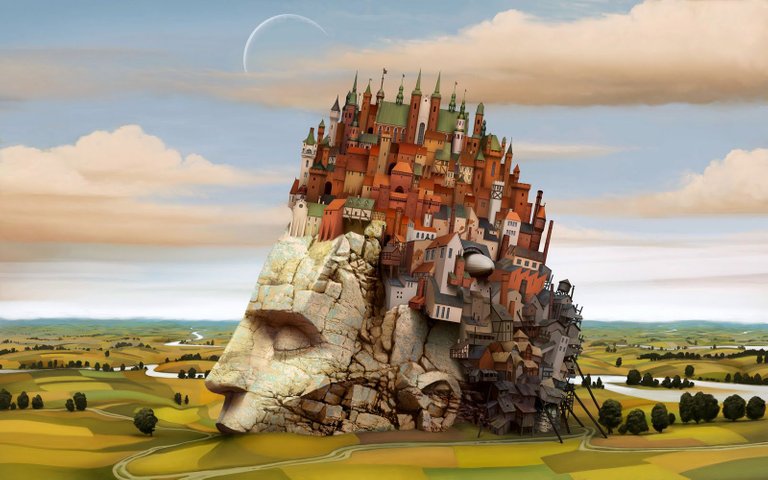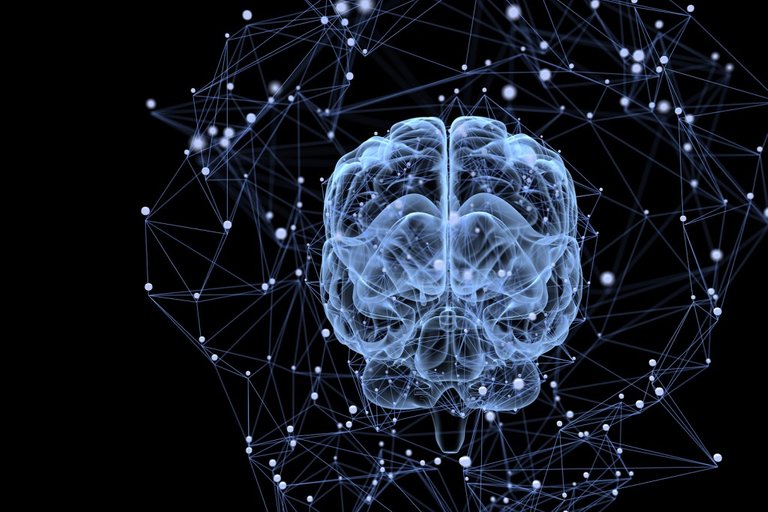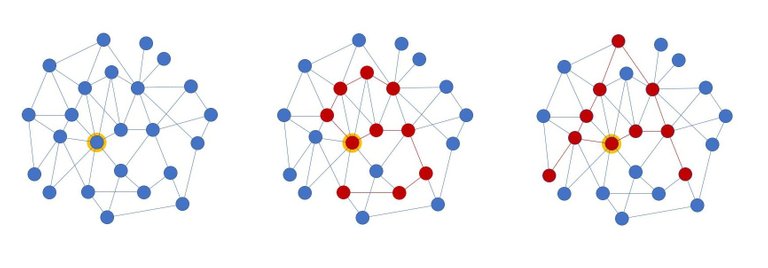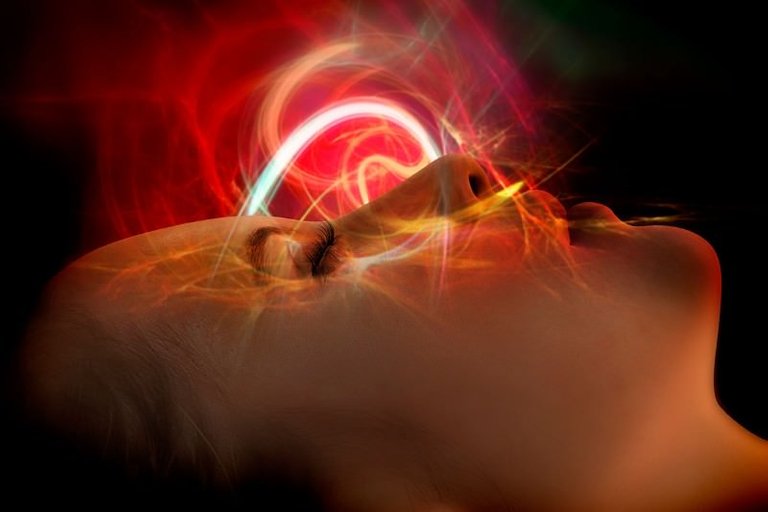Why do we go to sleep every night? Couldn’t we just continue experiencing the wonders of our surrounding perceptual world?
Well if we could, we might get crazy…

(surrealistic painting by Jacek Yerka)
A long time ago our species took an evolutionary gamble and chose general intelligence over physical superiority. We developed an incredibly complex structure called the brain. And it serves us as an enormously powerful tool to adapt to almost every environment and situation.
To understand why we need to sleep and why dreams occur while we are sleeping we must understand the way our brains are functioning.
The brain is an information processing network of unthinkably many neurons: nerve cells which are interconnected and thereby can influence each other’s states of activation. This way a particular activation pattern represents a particular mental state or process.

This amazing organization has great advantages because information is highly distributed and therefore extremely robust since the system will still be able to function properly even when some neurons should be defect.
Another aspect of a neuronal network is that the information is superimposed: The activation of a single neuron could represent many different mental states (as illustrated in the picture bellow), depending on the particular activation of the other neurons.
These attributes are great but can also lead to some difficulties, as I will show.

The way our brain learns is by strengthening or weakening the connections between neurons. For example, there might be a certain activation pattern which occurs whenever a visual stimulus of three dots arranged in a certain way is present. And another activation pattern which is always occurring with our belief of seeing a human face.
Whenever both patterns are happening roughly at the same time the connections will be changed in a way that one pattern is exciting the other in a more effective way, so that in our case the brain is improving face recognition.

But because there are many functions superimposed on a single neuron, the tuning of one function could impair another. This is a negative side effect which can lead to malfunctions such as far-fetched fantasies, obsessions or hallucinations.
So, it is kind of a balancing act for the brain to function properly. On one hand, it is important to be able to learn and adapt, on the other hand it has to keep a certain amount of flexibility otherwise soon almost everything could look like a face for example.

Since we can’t help but learn at any given moment, we need to take time to clean up from time to time. And that’s where sleeping and dreaming comes into play.
How exactly the mechanism really works is not yet understood entirely, but it is based on a more or less random stimulation of the brain. This is a way to kind of level the playing field and relatively speaking, weaken the learned connections of the day.

When we are sleeping, we are pretty much isolated from our perceptual inputs. Nevertheless, due to this reverse learning mechanism, our brain is still firing very actively. Also, still trying to make sense of those occurring activation patterns!
Similar to the Rorschach test the brain is interpreting rather random patterns and therefore producing our (sometimes strange and inconsistent) dream experiences.

So, our need for sleep seems to serve the purpose of keeping us in the evolutionary sweet spot: Being able to learn and adapt, but also staying flexible enough to react to a dynamic, ever changing environment without having too rigid biases.
The dreams we are experiencing seem to simply be byproducts of the reverse learning mechanism which is active during sleep.
But I want to say that, in my opinion, this does not take away from the fascination and mystery of dreams. As it is still interesting and intriguing why we interpret certain patterns in the way we do and produce those strange and alien dream experiences…
That's a fascinating article. I find a lot to relate to.